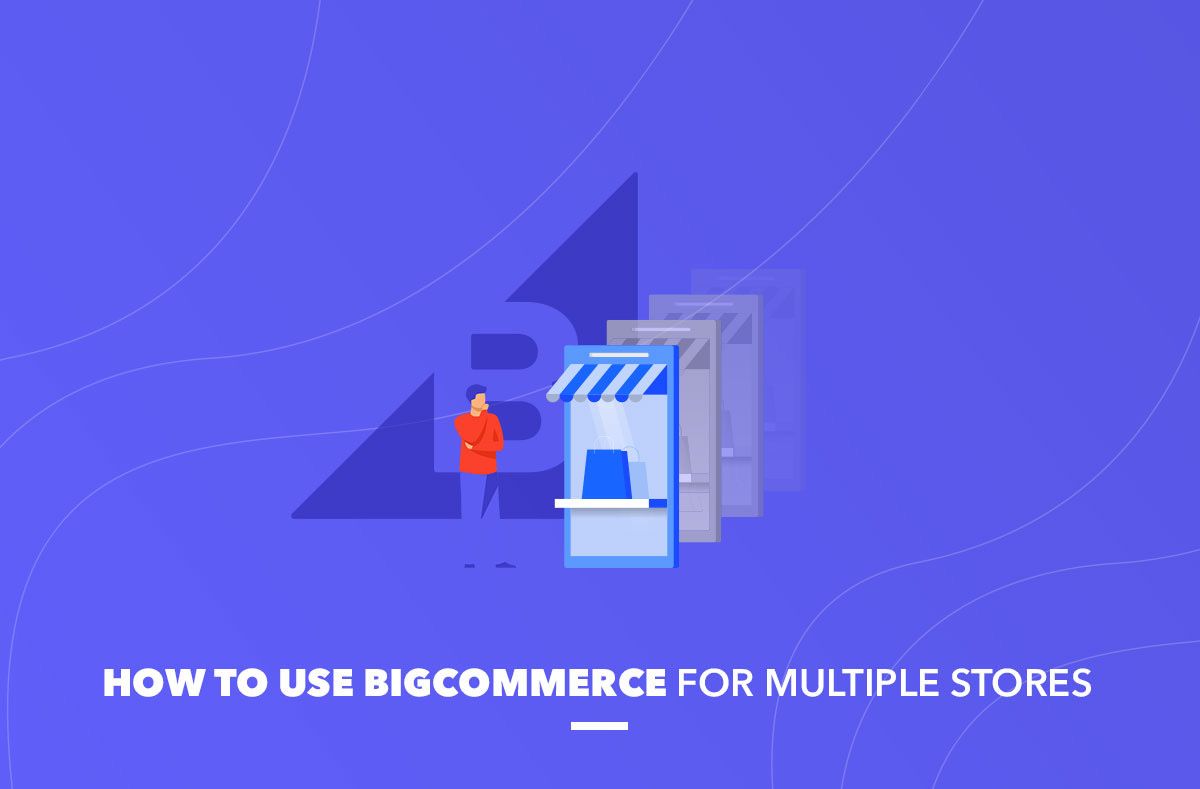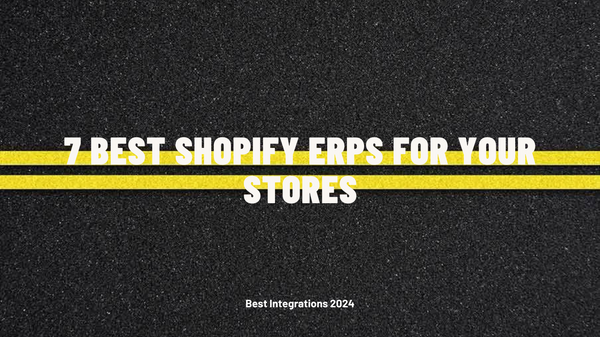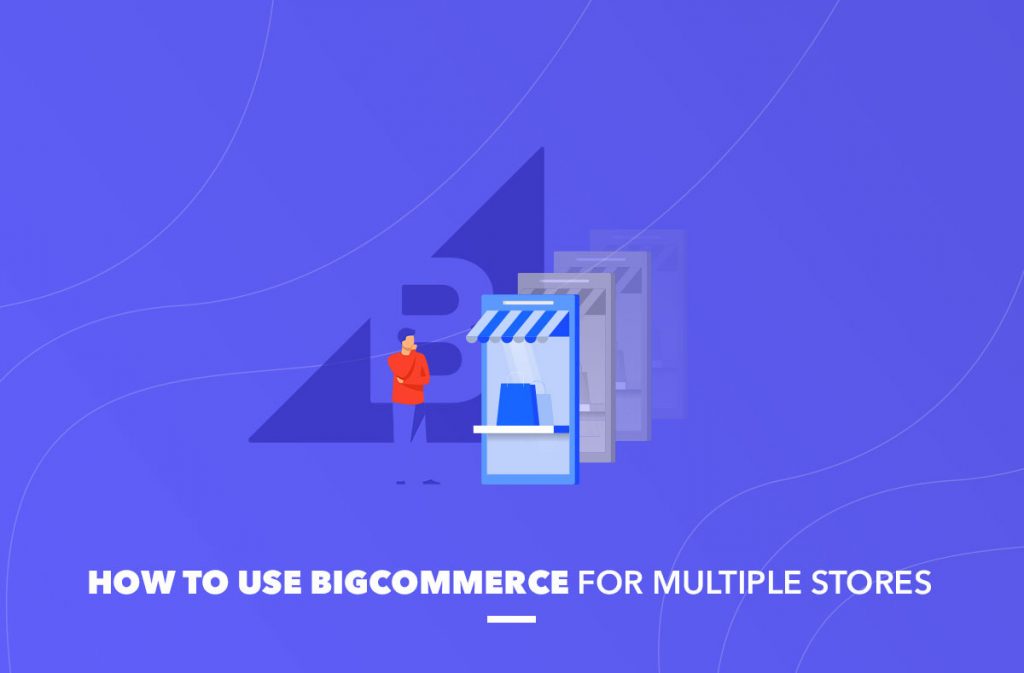
The majority of ecommerce websites are built so that one store attends to the needs of all the customers. This approach is good for the shop owners since they need to build and maintain only one online store. Yet, it limits both the customers and the potential of a personalized approach to each group.
Perhaps, your online store has multiple segments of your target audience or several products. If your current marketing strategy doesn’t address the needs of all of them, this can lead to missing out on sales. But, as an ecommerce brand, you may create a BigCommerce multi store for different groups of customers.
In this article, we will tell you about ecommerce multi-stores and their benefits for business. You will learn how to create and maintain a multi-store using the BigCommerce platform.
What is Ecommerce Multi Store?
Multi-store technology gives the ability to launch and maintain several online stores attending to different audiences and marketing channels. To manage multiple online stores, you only need to purchase a single license, run the same codebase, and manage all the stores in a common admin panel.
What do you get using multi-store functionality?
For example, you have a fashion brand operating in several countries. Instead of selling to all your audiences from a single site, you may create different shops for each country. You can make minor changes to design, pricing, and assortment in different shops.
Not only design, but you can also create personalized offers for each country: for example to have a Christmas sale for Western European countries in the middle of December and the New Year one at the end of December for Eastern European ones.
Multi Store Features
Design customization
With multi-store ecommerce, it is possible to customize the design of each online store. Some businesses prefer making completely different websites; the other ones want to have a common style. As a business owner, you will be able to choose the way of representing your business
Unlimited subdomains and links
With the multi-store feature, you can create as many online stores as you need and maintain them from centralized dashboards. You may store the content on different domains and subdomains and create an unlimited number of new ones.
Centralized admin panel
With ecommerce multiple storefronts, you can manage all your shopping platforms from a single admin panel. From there, you can create new stores, and manage existing ones. From the dashboard, you can view sales, marketing, and SEO reports from every store. Admin can also change access settings and user privileges.
Marketing & email automation
All marketing campaigns can also be managed with a multi-store marketplace platform. Here you can automate email sequences and push notifications to be sent to the customers of a single store. You will be able to analyze and improve SEO optimization, attract new traffic and develop different SEO strategies for different sites. It will also allow you to target your ads to the members of a specific audience.
ERP and CRM integration
With a multi store ecommerce platform, you get integrated ERP and CRM functionalities. They allow you to track all business and customer information from each of your online stores. The built-in ERP and CRM systems help to store the information from multiple shops in one place.
Benefits of multi-store solutions
Introducing a multi store ecommerce platform will be beneficial both for your business and for your customer. Below are some reasons why it’s reasonable to choose a multi store ecommerce platform for your retail business.
Cost-effectiveness
All the shops of multi-store ecommerce solutions share a single code- and database. Since your developers don’t have to write code for each separate shop, it cuts down the development cost. You will also be able to create a new shop or modify the existing ones without attracting a development team.
Scalability
While your business grows, you will need to have enough resources to handle this. Multi-store platforms can scale to handle many simultaneous users on each of your stores. It can also control an unlimited number of stores allowing you to explore new geographical horizons.
Attending different customer types
This will be particularly useful for the sellers dealing both with B2B and B2C customers. These segments have different products, pricing, payment terms, and many other options. Not to get confused, you’d better have separate shops for your business customers and individual ones.
With separate shops, you will be able to smoothly interact with your distributors, dealers, retailers, and individual customers. You can also run and implement different marketing strategies for B2B and B2C segments.
Running multi-brand stores
The central admin panel lets you manage different brands in the shops.
Exploring new markets
With a multi-store platform, you can create different shops for different locations. It allows you to display relevant products for that location, localize the content for various languages and adjust the pricing to the local currency. You can also make custom shipping options to the different regions and offer personalized promotions for required locations.
Challenges of multi-store solutions
With a lot of benefits, there can be a couple of difficulties with running a multi store ecommerce platform.
Data management
Multi-store solutions allow managing all the shops from a single admin panel. Yet, it might be time-consuming to handle all the data, like customer databases, ERP information, catalogs, etc.
Multi-store marketing
Running multiple shops, you need to make sure that all of them are region-specific, designed in the same style and there are no contradictions between them. You need to check that all the materials use the same tone of voice and message while creating marketing strategies for the stores.
You must create individual SEO titles and descriptions to avoid content duplication if you offer the same product on different websites.
How to Select an Ecommerce Multi Store Platform
All internet shops have different needs, and you should choose an ecommerce platform that will correspond to your specific ones. Here are some basic ecommerce features that should come out of the box with your platform:
- Domain name, hosting, and bandwidth
- Ecommerce website constructor with free themes
- App store with integrations and add-ons (social media integrations, e-mail newsletters)
- Mobile website optimization
- SEO tools and customizable URLs
- Built-in ecommerce features, such as promotions, discounts, analytics
- Customer support
To create a competitive online store and to save some money, you should choose advanced ecommerce software. Please see a checklist that will demonstrate that your ecommerce solution is reliable:
- Has everything you need, and you are comfortable while using it
- Has a hosting solution that will allow you to handle high load days
- Supports the type of products you are going to sell (physical and digital ones)
- Supports mobile resolutions
- Has built-in SEO tools
- Offers integration with third-party services
- Offers educational resources on how to use the platform and grow your business
- Supports a large number of payment options
- Offers fraud and DDoS-protection
- Has built-in analytic tools
Why BigCommerce is a Good Multi Store Solution
BigCommerce is one of the fastest-growing ecommerce platforms in the world. It works on the SaaS model, providing all the necessary ecommerce tools for a monthly fee. With BigCommerce multiple stores, you can sell digital, physical products, and even services.

The platform offers many customizable templates for you to create a unique design for your online store. It mainly targets users with a few design and coding skills, but tech-savvy customers may customize it with HTML and CSS.
BigCommerce core features
With BigCommerce, you can create headless ecommerce or a multi-store website that will be growing together with your business. Here are some features that BigCommerce offers to its customers:
12 free shop templates
BigCommerce offers 12 free customizable teams and 160 paid ones for unlimited design capabilities.
Drag-and-drop website constructor
Even the users without design and technical skills can create a website for their online store.
Unlimited staff accounts
With multiple staff accounts, all your team members will be able to manage and modify your online store. You will be able to customize the permissions for each user.
Headless and multi-store options
You can set up headless and multi-store online shops for your business. BigCommerce multiple storefronts offer all the necessary tech and marketing tools for customizing and promoting the online store.
Advanced SEO functionality
With BigCommerce, you get a set of SEO tools that will help you to attract more traffic to your store: on-page optimization, markup, content delivery network, keyword research, SEO-friendly templates, blogging, Google shopping.
Integration with PayPal, Stripe, and other payment methods
BigCommerce allows you to accept credit cards, PayPal, Google \ Apple \ Amazon pay, etc. The customers from countries from all over the world will be able to pay for your goods.
850 built-in applications and integration with third-party apps
There are more than 1000 apps available in BigCommerce. You will be able to select the necessary one for any of your needs: marketing, SEO, payments, social networks promotion.
Blogging functionality
BigCommerce allows you to create a blog of your shop and built-in SEO tools for promoting the articles in search engines.
No transaction fees
BigCommerce doesn’t charge a commission from your operations. You have to pay your payment processor.
Wide discount options
There are many available options for offering discounts, coupons, and promo codes for shoppers.
Advanced customization with HTML and CSS
You can use BigCommerce even without a technical background, but if you are a confident HTML and CSS user, you can deeply customize the platforms to your needs.
Product Information Management system
PIM system allows managing a big amount of products with complex attributes. It helps to store all product information in centralized storage where you can access all the relevant information. PIM system allows you to create and store the content, and then export it to all distribution channels — retailers, websites, etc.
Unlimited file storage
You can store all product information on BigCommerce servers at no additional fee.
Multi-currency selling
Your shop will support the majority of existing currencies and automatically convert the prices.
Mobile optimization
BigCommerce ecommerce platform is mobile-friendly and doesn’t require creating a separate mobile version of your online shop.
How to set up BigCommerce Multiple Stores?
Now you know how the BigCommerce multi-store solution works, so set up this feature. To use BigCommerce multi-store, you will need the following:
- A WordPress-based shop website
- BigCommerce free plugin for WordPress installed
- Multiple BigCommerce stores (you will need to purchase a separate plan for each of them)
- Each store should have its shipping, payment, taxing settings configured
- Each store must have the "Optimized One-Page Checkout" setting enabled
- Set The WordPress permalink to ‘Plain’ or ‘Default’
At your BigCommerce dashboard, go to Advanced settings => API accounts and hit the button ‘Create API account).
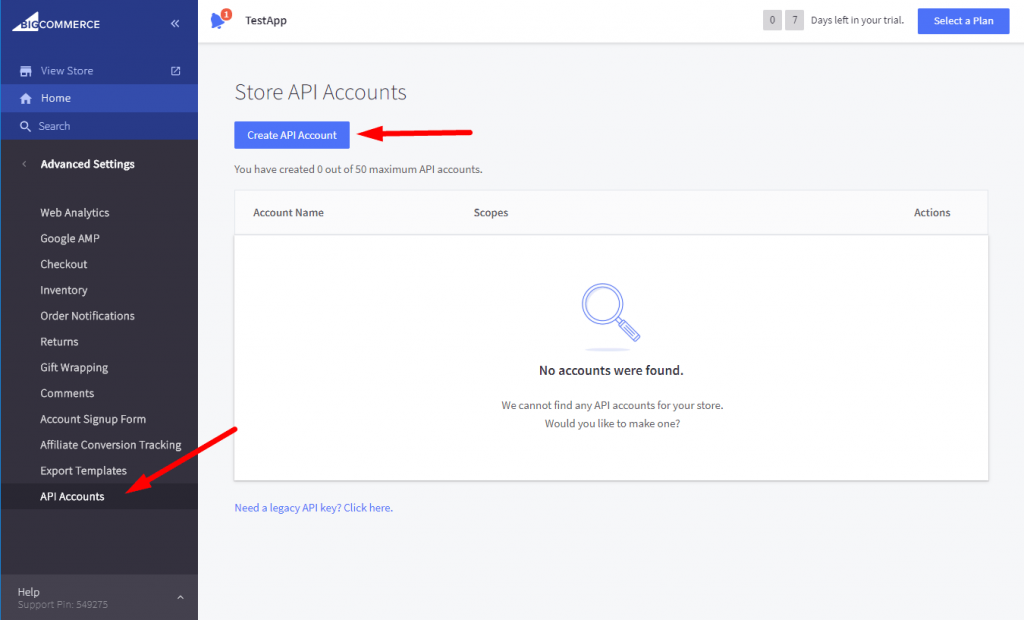
You will come to a pop-up screen and will need to fill in your API account’s name and OAuth Scopes. It’s necessary to use a name that differs from your API account and is more than three characters long.
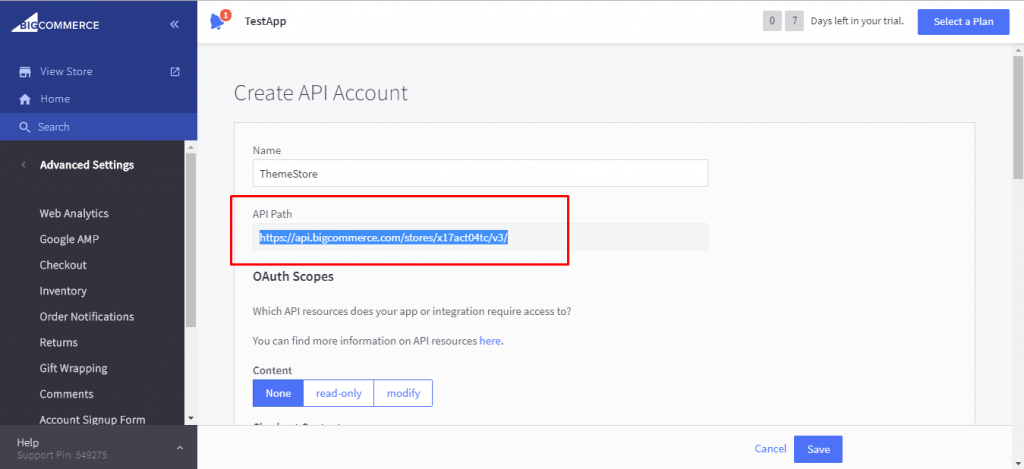
At OAuth scope, set all the points at the following way and save the changes:
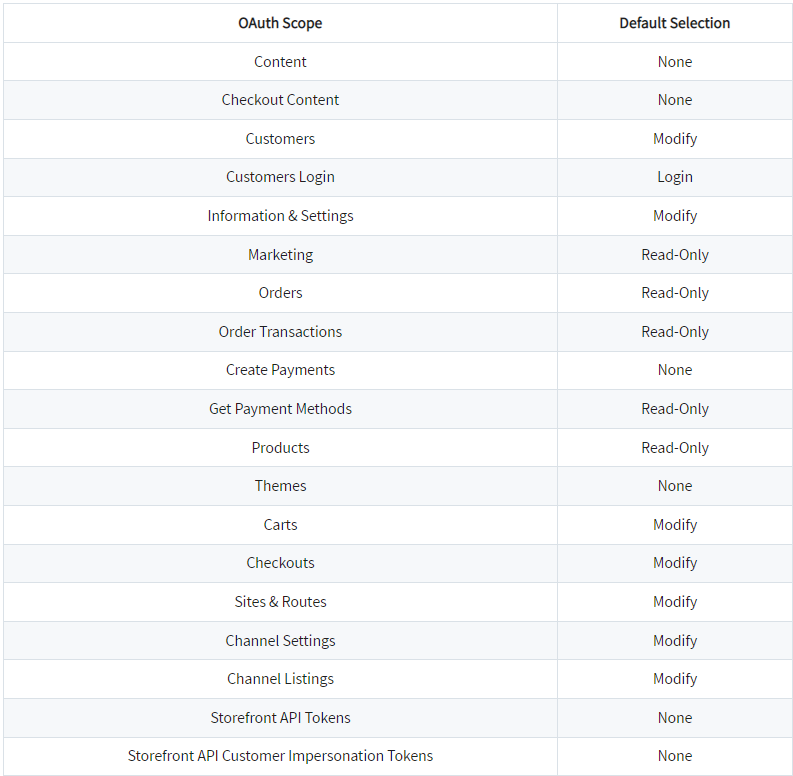
You will get BigCommerce API credentials:
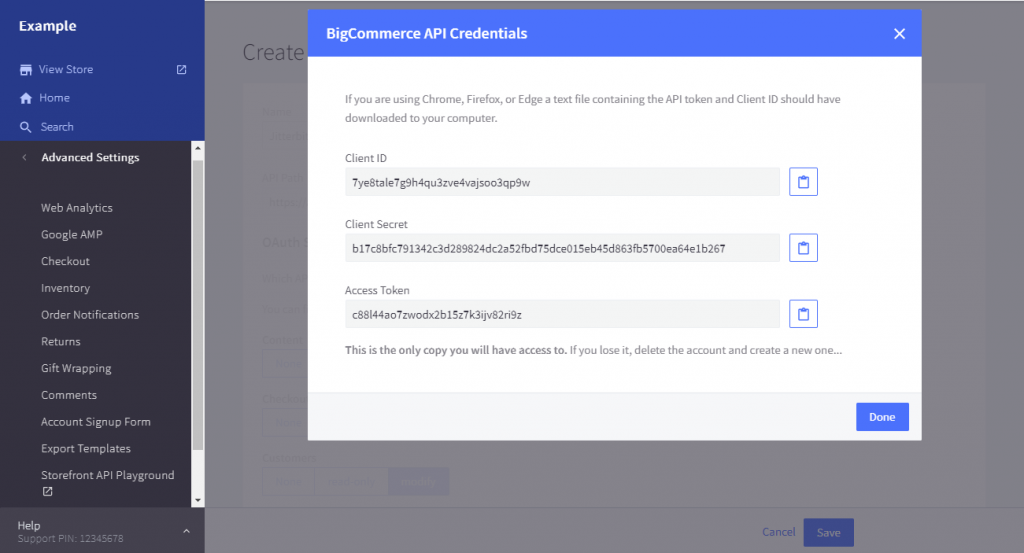
At your WordPress admin panel, you will see an ‘Enter your API credentials’ button:
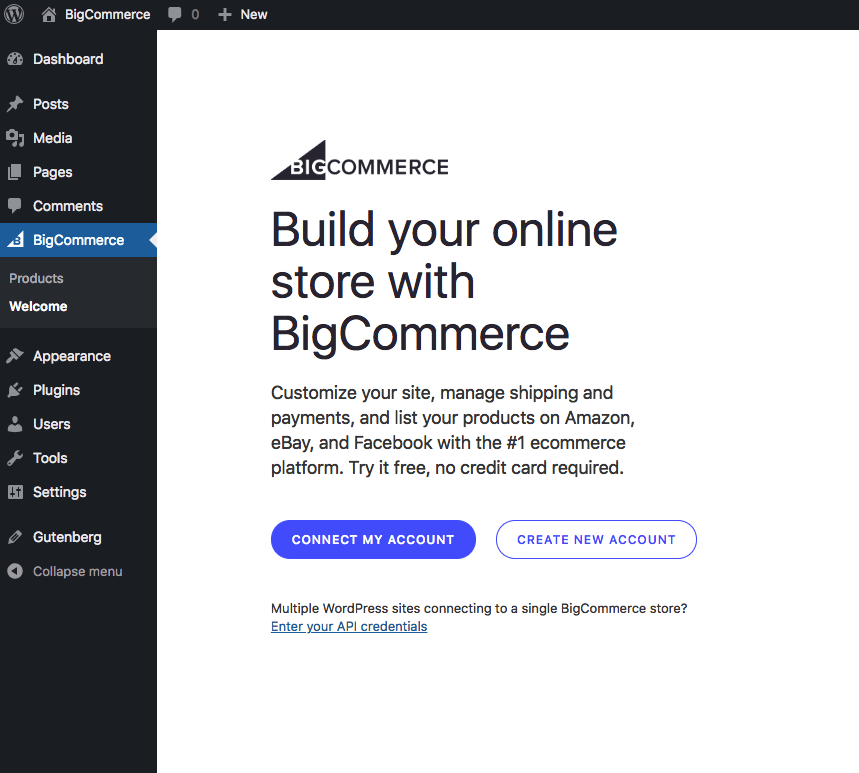
Enter the Client ID, Client Secret, and Access Token to the table and click on the ‘Connect using API credentials’ button.
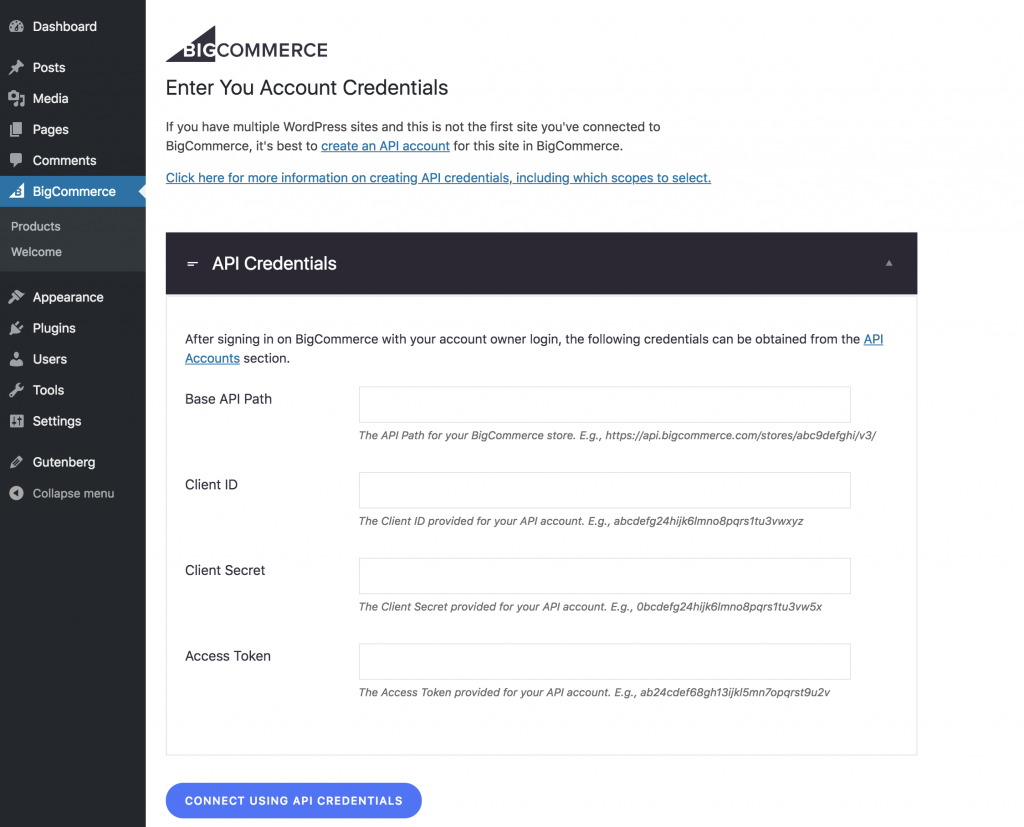
Once you have done this, you are ready to use the BigCommerce multi-store feature. You can connect your existing stores and customize them in the way you need.
Apps for Managing BigCommerce Multiple Stores
Although it might be challenging to manage several shops simultaneously, BigCommerce provides you with several applications. Now we will tell you about five applications that will assist you with managing your multi-store online shop.
SKULabs
SKULabs is a top application for inventory management. Let’s see its features:
Low stock alerts
The application will send you a notification when it notices that you are running out of stocks. It will help you to update the stocks at a time and your customers won’t need to wait for the necessary item.
Barcode scanning
The app assigns a unique code for different products. It will help you to decrease the chance of mistakes and quickly find the necessary stuff. It will save you a lot of time, reduce the number of returns, and help to increase customer experience.
Rich integrations
If you use several ecommerce platforms, SKULabs will integrate with Amazon, eBay, Etsy and support numerous delivery services like UPS, FedEx, DHL, etc.
4\7 customer support
If any challenge occurs, the SKULabs support team will gladly assist you at any time.
Brightpearl
Running a BigCommerce multi-store platform, you will have to process a lot of transactions. Brightpearl provides you with automated accounting systems. Your payment, shipping, and stock functions are consolidated. All the reports are up-to-date, and you don’t need to do any compilations.
Brightpearl helps you to synchronize all campaigns, sales processes, and manage the orders and inventory from a centralized control panel. Let’s see its opportunities for your business:
- Centralization of sales channels, inventory, supply chain, and shipping functionality
- Automating the majority of sales operations: order fulfillment, shipping, inventory management, invoicing, and accounting
- Analytic functions: automated reporting, financial analysis, inventory, and demand forecasting, analyzing sales channels
- Scaling with growing customer expectations and business expansionLinnworks
This application has pretty similar features to SKULabs and Brightpearl. But LinnWorks has advanced reporting and analytic functionality. You can generate custom reports by sorting the data by store, product, date, etc. It also allows tracking the customer demand for individual orders.
Here is a detailed breakdown of Linnworks functionality:
Multichannel listing
Here you can control and group your listings, unite them into bundles. You also can set specific prices, titles, descriptions for different selling channels.
Inventory management
Maintain accurate stocks, manage the warehouses across all your locations, and control the supply chain. The app can predict the demand, prevent overselling, and track the logistics and stocks in different spots.
Order management
With a centralized panel, you can control the order processing, packing, and delivery to the customer’s door. The system will keep the customer updated regarding the order status.
Shopventory
It is a good inventory management tool that will help to run your business seamlessly. It integrates with BigCommerce, Clover, Square, PayPal, etc. Shopventory synchronizes the data of your multi-store shop, manages the orders, tracks the delivery, monitors the stock, etc. The app is flexible and will fit both small and big businesses.
Let’s consider its functionality in more detail:
Reporting functions
The app monitors your profit, sales reports, inventory, demand; it also can generate detailed reports. You can customize them by period, item, region, etc.
Automated orders
The app can monitor minimum and maximum levels of demand; it also can adjust the stock at each location according to customers’ preferences.
Direct invoice
Shopwentory can create customer-specific orders and collect payments by integrating with the majority of payment providers. It will monitor your sales both from BigCommerce and 3rd-party platforms, like Amazon, eBay, etc.
User access control
Update the permissions for your employees, managers, accountants, etc.
Multiorders
With Multiorders, you can connect your sales channels and manage the inventory of different stores from a centralized admin panel. It has robust integration options with BigCommerce, Amazon, eBay, PayPal, FedEx, and other platforms for running an ecommerce platform.
Here is its detailed functionality:
- Tracking the shipment
- Low-stock alerts
- Automatic order management
- CSV export\import
- Analytic functions and report generation
- Adding several team members, permission update
Conclusion
Once you have read this article, you know about BigCommerce multi-store features; why they might be practical for your business.
You have learned all the functionality, benefits, and challenges of the system; acquired skills in selecting a multi-store provider and setting up an online store on your own.
If you wish to attract a team of professionals to your ecommerce multi-store business, contact us to book a free consultation. We will explore the possible options and offer the best one for you.
